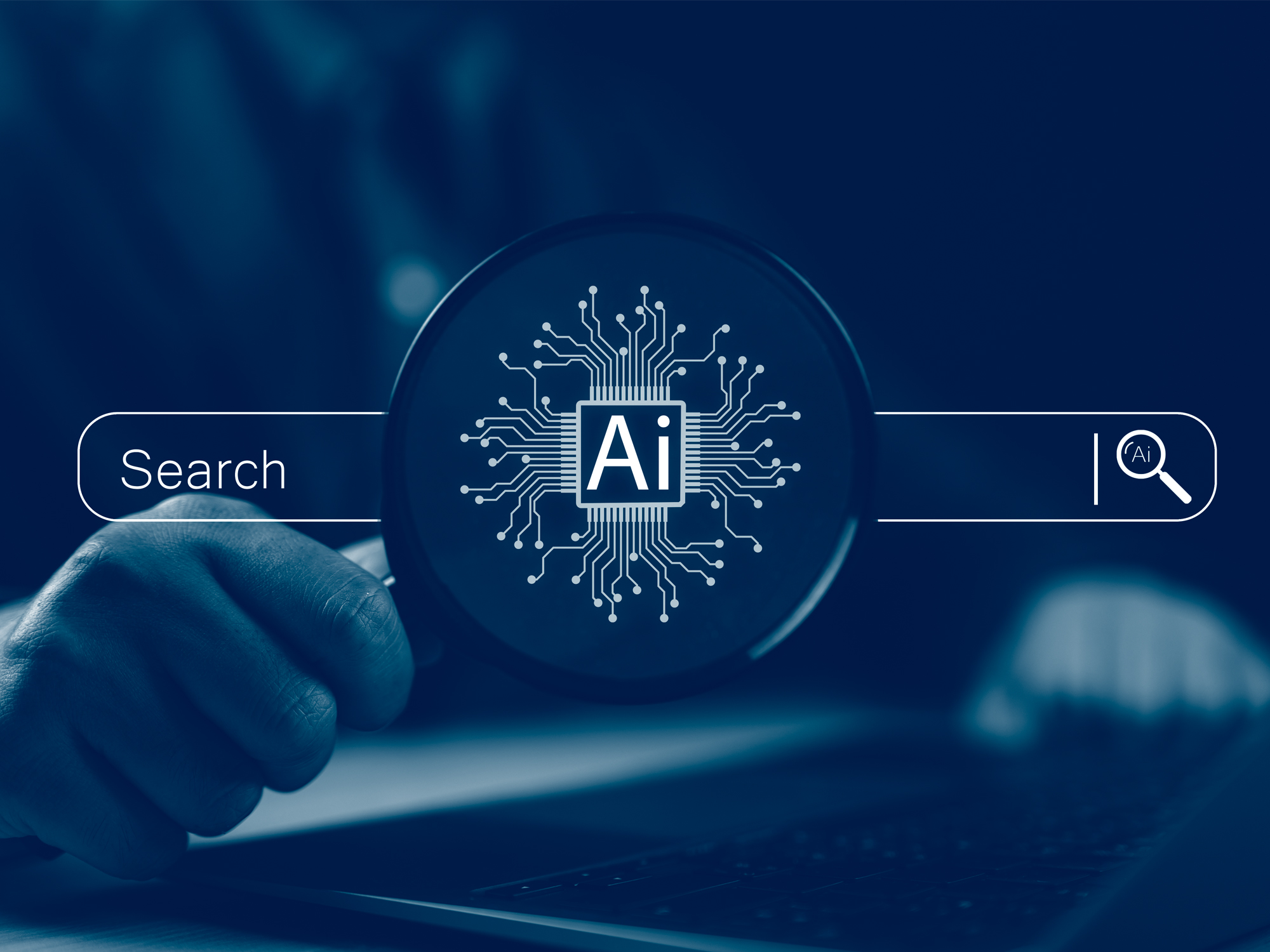
Professor of Accounting and Director of Graduate Business Programs, Mikhail Pevzner, partnered with artificial intelligence to develop this post. It serves as a demonstration of how generative AI can be a valuable workplace partner.
The Human-AI Collaboration
The Task
I developed an AI prompt to help me edit a thought piece. Subsequently, I incorporated some of ChatGPT's suggested “elucidations” to improve the piece's clarity and style. Here’s how it turned out.
...
I’ve been thinking a lot lately about how artificial intelligence will shape today’s—and especially tomorrow’s—workforce. As someone who works in the human capital field and as a parent to an autistic child, I find myself both intellectually and personally invested in where the future of work is headed. The truth is, I’m worried—about how my children will navigate this new world, and how prepared we really are for what’s coming.
This week, The Wall Street Journal published three interesting articles that tackle this topic head-on. Together, they offer a short-term reason to be concerned and a long-term reason to be hopeful—for new graduates and for anyone early in their career.
In the short term, AI is already driving substantial efficiency gains across industries. That’s great for companies, but the immediate consequence is that it’s becoming much harder for young graduates to land their first job. As firms automate routine tasks, the traditional entry-level pathways—especially those rooted in administrative, writing, or analyst roles—are drying up.
But here’s the long-term upside: the people who learn to use AI as a tool rather than
fear it as a threat will be the ones who thrive. AI skills are no longer optional.
They’re fast becoming essential for anyone hoping to build a successful white-collar
career—and to avoid a future of underemployment or prolonged dependence on family
support.
more AI-focused education, for everyone
This brings me to what I see as an urgent need: more AI-focused education, for everyone. I know this may be an unpopular message in some circles, but I believe strongly that staying in school and studying the right things is more critical than ever. Students who leave college with a diverse, deep portfolio of skills—technical, analytical, and communication—will be the most resilient and successful in the workforce of the future.
That means universities must step up. They need to align more closely with employers to ensure that curricula emphasize real-world, job-ready capabilities, especially those involving data, automation, and strategic thinking with AI. The days when general education alone could provide a clear career on-ramp are fading fast.
Just One Example of Productivity
What is our time worth?
I only wrote the previous section. The rest was generated by ChatGPT using real and credible sources, all of which I suggested.
Total time spent? About 40 minutes. Before AI, a post like this would have it would have taken me quite a bit longer—possibly over an hour—and that’s not counting the polishing. That's a significant productivity boost from one simple task.
...
Now multiply that across roles and industries. As companies continue to find creative ways to apply AI—even within its current limitations—productivity and efficiency gains will only accelerate. But this also means that jobs focused on routine, repeatable tasks (like proofreaders, junior marketing writers, paralegals, and admin assistants) are rapidly disappearing. These used to be solid middle-class job entry points, particularly for liberal arts graduates.
What we’re seeing is the early stage of a bifurcated job market. On one end, a highly
compensated minority can creatively and effectively apply AI to solve complex problems.
On the other hand, jobs that are still largely untouched by AI—manual labor, trades,
service work—where AI is just a sidekick, not a central tool.
If you’re a student or a parent, ask yourself this: Do you want to be in either of those extremes?
We may be a decade away from this becoming fully realized, but the signs are already here. Preparing for it—through education, skill development, and open-eyed optimism—is the best way to ensure you don’t get left behind.
AI-generated based on the sources found below.
- Young graduates today are entering one of the most competitive job markets in recent memory. While the U.S. unemployment rate hovers around 4 percent, recent college grads face a notably higher rate of 6.6 percent, with many encountering job postings that label entry-level roles but demand three to five years of experience (Lahart & Chen, WSJ, June 16, 2025). In this challenging climate, one skillset is emerging as the great equalizer: artificial intelligence.
- Across industries, AI is quickly becoming the cornerstone of business efficiency. PepsiCo, for instance, has embedded AI across logistics, R&D, and customer service, leveraging intelligent agents and machine learning systems to drive measurable improvements in both productivity and profitability—all while avoiding the need to increase headcount (Rosenbush, WSJ, June 18, 2025). Amazon CEO Andy Jassy recently reinforced this reality with a pointed message to employees: “You’re not going to lose your job to an AI, but you’re going to lose your job to somebody who uses AI” (Gallagher, WSJ, June 19, 2025).
UBalt: The AI of Today and Tomorrow
Academic Programs Are Ready to Move Organizations Forward
So, where does this leave new graduates, especially those who feel unprepared to enter a workplace being reshaped by machine learning, automation, and generative AI? A promising answer lies in graduate programs like the M.S. in Artificial Intelligence for Business at the University of Baltimore (UBalt).
A Curriculum Designed for Business Impact
Unlike purely technical AI degrees in computer science and engineering schools, UBalt’s M.S. in AI for Business focuses on how AI transforms real-world business functions.
Students learn to apply tools like machine learning, data visualization, and predictive analytics to enhance decision-making, streamline operations, and create customer value. These are precisely the competencies companies are prioritizing as they adopt AI to boost efficiency and profitability.
For example, companies like PepsiCo have shifted from theory to execution—deploying AI to automate asset maintenance, analyze supply chain data, and even guide career development conversations via intelligent agents (Rosenbush, WSJ, 2025). UBalt’s program prepares students to contribute to such transformations from day one.
Bridging the Skill and Experience Gap
One of the biggest hurdles facing recent grads is the “experience paradox”—you need experience to get hired, but you can’t get experience without being hired. UBalt’s program addresses this by incorporating project-based learning, practical case studies, and exposure to real enterprise technologies like Salesforce AI and Power BI.
In an environment where entry-level hiring has dropped 17 percent since 2019 (Lahart & Chen, WSJ, 2025), graduates need credentials that go beyond the traditional résumé. A specialized master’s program in AI for business not only signals preparedness—it shows applied competence.
Modest Economic Gains, Major Workplace Disruption
MIT economist Daron Acemoglu offers a valuable macroeconomic perspective: AI may only boost U.S. GDP by 1.1–1.6 percent over the next decade, but that’s no reason to underestimate its power. While only about 5percent of job tasks are automatable with today’s AI, these are often high-volume, repetitive functions that companies are eager to streamline (Acemoglu, MIT Economics, 2025). Graduates who can work alongside AI—not in fear of it—will be best positioned for long-term career success.
Acemoglu also cautions that unchecked AI deployment can concentrate power and widen
inequality. UBalt’s program addresses this by incorporating courses on ethical AI
and data governance—training students to not only use AI but use it responsibly.
Future-Proofing Through Flexibility and Relevance
Whether you’re a business major, a liberal arts graduate, or someone pivoting into analytics from another field, UBalt’s M.S. in AI for Business is designed for accessibility. With online and hybrid options, working professionals and job seekers alike can skill up in real time without pausing their careers.
Graduates gain the knowledge and confidence to:
- Improve organizational workflows
- Reduce inefficiencies
- Contribute to measurable ROI initiatives
- Lead ethically in a data-driven world
Final Thought
The AI revolution won’t replace all jobs, but it will reshape how they’re done.
As businesses accelerate and efficiency becomes the new currency, an M.S. in AI for Business from UBalt isn't just an academic pursuit for recent graduates—it's a strategic imperative for thriving in a volatile job market. And for recent graduates facing a challenging job market, it’s more than just advanced education; it's a vital strategic investment to gain the efficiency-driven skills demanded by today's business environment.

About Mikhail Pevzner, Ph.D.
Professor Pevzner is a faculty member at the University of Baltimore's Merrick School
of Business, joining in 2013. He primarily teaches auditing and financial reporting,
also covering economics, finance, and business valuation. He is also the director
of the school's Graduate Business programs.
His expertise spans empirical capital markets/auditing, financial accounting, finance,
and economics research. Since 2007, Professor Pevzner has authored 25 research articles
in leading journals such as Journal of Accounting Research and Journal of Financial Economics.







